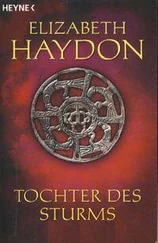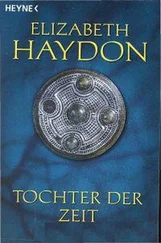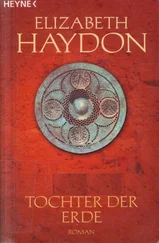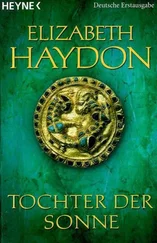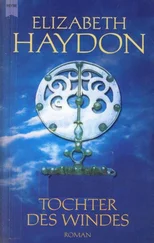Elizabeth Haydon - The Assassin King
Здесь есть возможность читать онлайн «Elizabeth Haydon - The Assassin King» весь текст электронной книги совершенно бесплатно (целиком полную версию без сокращений). В некоторых случаях можно слушать аудио, скачать через торрент в формате fb2 и присутствует краткое содержание. Год выпуска: 2005, Жанр: Фэнтези, на английском языке. Описание произведения, (предисловие) а так же отзывы посетителей доступны на портале библиотеки ЛибКат.
- Название:The Assassin King
- Автор:
- Жанр:
- Год:2005
- ISBN:нет данных
- Рейтинг книги:3 / 5. Голосов: 1
-
Избранное:Добавить в избранное
- Отзывы:
-
Ваша оценка:
- 60
- 1
- 2
- 3
- 4
- 5
The Assassin King: краткое содержание, описание и аннотация
Предлагаем к чтению аннотацию, описание, краткое содержание или предисловие (зависит от того, что написал сам автор книги «The Assassin King»). Если вы не нашли необходимую информацию о книге — напишите в комментариях, мы постараемся отыскать её.
The Assassin King — читать онлайн бесплатно полную книгу (весь текст) целиком
Ниже представлен текст книги, разбитый по страницам. Система сохранения места последней прочитанной страницы, позволяет с удобством читать онлайн бесплатно книгу «The Assassin King», без необходимости каждый раз заново искать на чём Вы остановились. Поставьте закладку, и сможете в любой момент перейти на страницу, на которой закончили чтение.
Интервал:
Закладка:
“But where are the slaves coming from?” Ashe asked. “Merchant ships are not equipped to assault coastal villages, and Sorbold naval vessels are not attacking the coastline of the Alliance. If the Sorbold navy had sailed across the Central Sea to Manosse, or some far-flung land away from the continent, Talquist would be vulnerable at home. This does not make sense—something is missing.”
“Agreed,” said the Patriarch. “Much is missing—much more than you can even imagine.” Something in the sound of the holy man’s voice made Gwydion’s blood chill suddenly. The council had been trading information of terrible consequence and unfathomable grief with efficiency and detachment; it was as if in the face of impending invasion and a war that would bring about the deaths of thousands, only the coldest logic could remain. But now, there was something deeper in Constantin’s words, something otherworldly. A quick glance told him that the others had heard the ominous warning as well; Rhapsody’s eyes were glittering, her face frozen. “Tell us,” said Ashe finally. The Patriarch’s eyes went to each person in attendance. Finally he averted them, as if to keep them from boring through the others. “Many things are missing, but I will begin with the one closest to your own family. Rhonwyn, your aunt, Lord Marshal, your great-aunt, Lord Cymrian, the Seer of the Present, has been taken from the Abbey of the Sun in Sepulvarta.” The members of the assemblage looked blankly at each other. Rhonwyn, like her two sisters, was a living relic, with the vision of Fate. Though, unlike her sisters, Rhonwyn was gentle and frail, most of the population that knew of their existence was too intimidated or frightened to even meet their gazes. A few intrepid souls occasionally worked up the courage to approach them long enough to seek a prophecy, often leaving in terror before it was finished. “Define ‘taken,’” said Ashe quickly. “Though the abbess did not see it occur, she believes that the Seer was abducted,” said the Patriarch. “I left Sepulvarta upon hearing this news, though I had already determined to come to you with other tidings. When the abbess climbed the staircase to the Seer’s tower to bring her the morning meal eleven days ago, she was gone. Rhonwyn has not left that abbey in a hundred years, save to attend the Cymrian Council that invested you both, m’lord and lady. She is incapable of it—incapable of independent survival.” Achmed and Rhapsody exchanged a silent glance. Several years prior they had climbed that same staircase together to visit the frail Seer, one of the triplet daughters born to the dragon Elynsynos and Merithyn, the Ancient Seren explorer who had been her lover. The three sisters, known in the language of the Cymrians as the Manteids, had each been born with a surpassing gift of sight, and all were impelled to speak only the truth about what they saw, though what was true was not always the same as what was accurate. Each of the sisters was thought to be, at least on some level, insane. Anwyn, the Seer of the Past, was the least so—the Past was a more concrete realm than either the evanescent Present or the uncertain Future—and she had been known to connive in the use of her gift of sight, hoarding the knowledge it gave to her and dispensing it in ways to be interpreted as she wished it to be. Manwyn, the Seer of the Future, was both the most unbalanced and most sought after, because being able to see what had not yet come to pass gave many desperate pilgrims the belief that her aid might help them achieve or prevent what they could not otherwise be able to achieve or prevent. Most left her crumbling temple disappointed or deluded, because the prophecies the madwoman chanted at them often had many interpretations. Rhonwyn, the most fragile of the sisters, actually had the clearest grip on reality. The difficulty was that it was momentary; as seconds passed, the Present turned into the Past, and she could not recall from moment to moment what had been asked of her, or even what she had said. Few had the patience or the insight to tolerate speaking with her for more than a few minutes, and most generally gave up in frustration, leaving her alone and unsought after in her decaying abbey, smiling to herself and staring up with blind eyes that had no irises into the sky above her. “For a week or more before the Seer disappeared, she had been visited regularly by a priest from the manse of Sorbold within the city of Sepulvarta,” the Patriarch continued gravely. “Each day the man would come to the abbey with two acolytes, climb the courtyard stairs, and pose a single question. Then he left, returning at the same time the next day.”
“Did the abbess conveniently overhear the question?” Achmed asked. “After a few of the daily visits, she made it a point to be working in the outer garden beneath Rhonwyn’s tower at the time the clergy arrived,” said Constantin. “She tells me that the same question was asked on two occasions—the last two days before the Seer disappeared.”
“And what was it?” Anborn demanded. The Patriarch glanced at Rhapsody. “The question the priest asked was this—‘Where is the Child of Time?’ On the two occasions that she overheard, the Seer was silent, then said only that there was no Child of Time. It would seem that on the last day the priest received a different answer. By my estimate, that would have been on Yule, the Turning Day of the new year.” His voice became softer. “When was your son born, m’lady?” The Lady Cymrian’s face went white; Achmed and Ashe exchanged a glance. “New Year’s Day,” Ashe said finally, “as the night passed from one day to the next, from one year to the next. But why was a priest of Sorbold seeking this child—our child, if he be this so-called Child of Time?”
“Because his emperor has been searching for that child ceaselessly,” said the Patriarch darkly. “I have heard it in his prayers, and in those of the remaining priests of Sorbold.” He eyed Gwydion Navarne, the only adherent of his religion in the council. “In our faith, unlike that of the Filidic order of Gwynwood, prayers are not offered directly to the Creator, but through channels, to the pastor of each congregant’s local temple, who offers up those prayers and the others of the locality to central abbots, who pass them along to the benison of their area, who present them, in prayer, to me. I offer them to the All-God in supplication through the great spire of Lianta’ar. At each step the worship becomes more powerful, more pure, because it is joined by so many other offerings of praise and thanksgiving. I do not normally discern what is being asked for—it is only my responsibility to add my own entreaties for the All-God’s grace and make the offering. “But, as I told you, Nielash Mousa, the benison of Sorbold, is dead, or dying. And Talquist has killed many of the order, especially those who lived within the manse at Jierna Tal.”
“Why?” Ashe asked incredulously. Constantin’s brow blackened. “We’ll get to that in a moment,” he said darkly. “As a result of this carnage, the prayers of the faithful in Sorbold are now scattered, misdirected. So they come to me directly, and as a result I hear them—and it distracts me from my station. Of late I have heard the same entreaty made over and over to the All-God on behalf of the emperor—and that is to find the Child of Time.”
“Again, I ask you, why?” Ashe said, his tone darker. The air grew noticeably drier as the dragon in his blood grew more agitated. The elderly cleric returned his stare, then sighed, his lined face showing his age for a moment. “If you are asking me for Talquist’s reason, I cannot give you an answer. I hear his prayers, but I cannot see into his heart, black and twisted as I know it to be. But I can surmise a possible motivation—though I pray to the All-God I am wrong.”
Читать дальшеИнтервал:
Закладка:
Похожие книги на «The Assassin King»
Представляем Вашему вниманию похожие книги на «The Assassin King» списком для выбора. Мы отобрали схожую по названию и смыслу литературу в надежде предоставить читателям больше вариантов отыскать новые, интересные, ещё непрочитанные произведения.
Обсуждение, отзывы о книге «The Assassin King» и просто собственные мнения читателей. Оставьте ваши комментарии, напишите, что Вы думаете о произведении, его смысле или главных героях. Укажите что конкретно понравилось, а что нет, и почему Вы так считаете.

